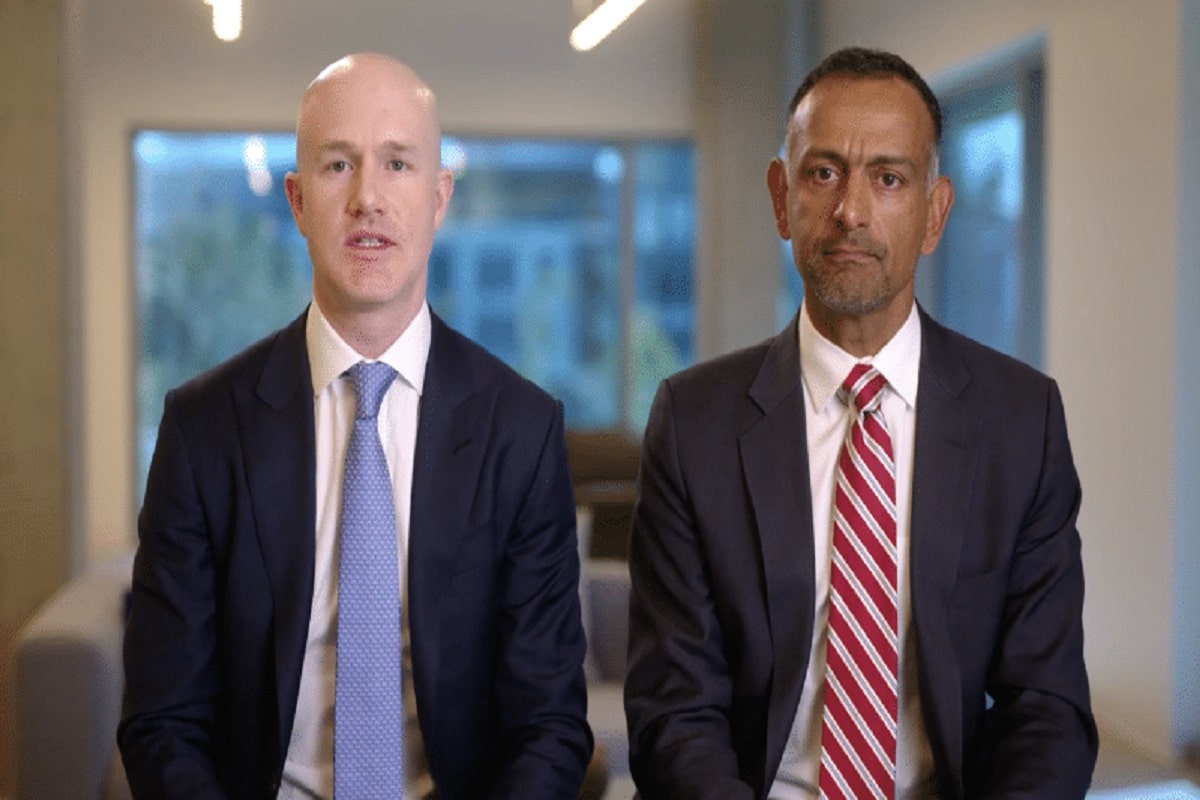Brook Taube, a prominent figure in the world of finance and investment, has built a career that spans several decades, earning recognition for his leadership roles in various investment firms and his expertise in alternative investments. However, Taube’s career faced a significant challenge when he received a Wells Notice from the U.S. Securities and Exchange Commission (SEC). This article takes a closer look at who Brook Taube is, the nature of the Wells Notice, and what it means for individuals and firms in the financial sector.
Who is Brook Taube?

Brook Taube is an experienced financier with a career focused on alternative investment strategies, including private equity, hedge funds, and venture capital. Over the years, he has co-founded and managed several investment firms, the most prominent being Medley Management Inc. and Medley Capital Corporation (MCC). These entities specialise in providing debt capital to middle-market companies, offering financing solutions that banks and traditional lenders might avoid.
Taube, along with his twin brother Seth Taube, has been a key player in building Medley into a respected name in middle-market lending. Medley Capital Corporation, in particular, operated as a business development company (BDC), designed to offer financing to businesses that are too small to access traditional capital markets but still require significant capital.
Despite Medley’s success, the company has faced several financial challenges in recent years, resulting in scrutiny from regulators and investors alike. It was during this period of difficulty that Brook Taube found himself receiving a Wells Notice from the SEC, a significant event that added to the company’s challenges.
What is a Wells Notice?
A Wells Notice is a formal communication issued by the U.S. Securities and Exchange Commission (SEC) to inform individuals or companies that the SEC is considering taking enforcement action against them. The notice typically follows an investigation and serves as a warning that the SEC believes there has been a violation of securities laws. However, a Wells Notice is not a formal accusation; it is an opportunity for the recipient to respond and present their case before any enforcement action is taken.
Recipients of a Wells Notice are allowed to submit a “Wells submission” to argue why the SEC should not pursue charges. This is an important part of the process, as it gives the individual or firm a chance to explain their side of the story, provide evidence, or negotiate a settlement. While receiving a Wells Notice does not guarantee that charges will follow, it is a serious development that can impact a firm’s reputation, business relationships, and stock price.
The Context Behind Brook Taube’s Wells Notice

Brook Taube’s Wells Notice is tied to the challenges faced by Medley Management and Medley Capital Corporation in the years leading up to the notice. The company, which once thrived in the middle-market lending space, began to experience financial difficulties due to several factors, including a changing regulatory landscape, increased competition, and concerns over its investment portfolio.
Medley Capital Corporation, which was publicly traded on the New York Stock Exchange, faced declining stock prices and mounting investor dissatisfaction. The company’s performance lagged behind its peers, and questions arose regarding its governance, risk management practices, and the quality of its investments.
Amid these challenges, Brook Taube and other executives at Medley became the subject of scrutiny from the SEC. Reports suggest that the SEC’s investigation may have been related to concerns over the company’s disclosures to investors and the management of its assets. Specifically, there were questions about whether Medley and its executives provided accurate and complete information to shareholders regarding the company’s financial health and business prospects.
In this context, Brook Taube’s receipt of a Wells Notice signalled that the SEC was considering formal enforcement action, potentially for violations of securities laws related to the company’s financial disclosures.
Impact of the Wells Notice on Medley and Brook Taube
The receipt of a Wells Notice can have a profound impact on the individual or firm involved. For Brook Taube and Medley, the notice likely heightened concerns among investors, partners, and regulators. In the world of finance, trust and credibility are paramount, and the issuance of a Wells Notice can create uncertainty about a company’s governance and management practices.
Following the Wells Notice, Medley faced increased pressure from shareholders and stakeholders, leading to significant financial and operational challenges. The company’s stock price continued to decline, and investor confidence weakened as questions about its future grew.
In response to these challenges, Medley Capital Corporation explored various strategic options, including potential mergers or acquisitions to stabilise the company and improve its financial outlook. However, these efforts were complicated by the ongoing regulatory scrutiny and the uncertainty surrounding Brook Taube’s future involvement in the company.
For Brook Taube, the Wells Notice represented not only a professional challenge but also a reputational one. As a high-profile financier with a track record of success, his involvement in a regulatory investigation raised concerns about his leadership and decision-making abilities. It also cast a shadow over his future prospects in the financial industry, where trust and ethical behaviour are critical.
What Happens After a Wells Notice?

Once a Wells Notice has been issued, the recipient has a limited amount of time to respond through a Wells submission. This document allows the individual or firm to present their defence and explain why the SEC should not move forward with formal charges. In some cases, the SEC may decide not to pursue enforcement action based on the information provided in the Wells submission.
However, if the SEC is not persuaded by the submission, it may proceed with formal charges, which could include civil penalties, fines, or other sanctions. In extreme cases, individuals may be barred from serving as officers or directors of public companies, or they could face criminal charges if the violations are severe.
For Brook Taube and Medley, the outcome of the Wells Notice remains a critical factor in determining the company’s future. If the SEC decides to pursue enforcement action, it could lead to legal battles, financial penalties, and further reputational damage. On the other hand, if Taube is able to successfully defend himself and Medley, it could pave the way for a potential recovery.
Lessons for Investors and Executives

The issuance of a Wells Notice to Brook Taube highlights the importance of transparency, governance, and risk management in the financial sector. Companies that fail to provide accurate and complete information to investors can face significant consequences, both from regulators and the market.
For executives, the case serves as a reminder of the personal risks involved in leadership roles, particularly in publicly traded companies. The decisions made by top executives are subject to scrutiny from shareholders, regulators, and the media, and any missteps can have lasting consequences.
From an investor’s perspective, the Medley case underscores the need for due diligence when investing in companies. Investors should pay close attention to a company’s financial disclosures, governance practices, and management team to ensure that they are making informed decisions.
Conclusion
Brook Taube’s receipt of a Wells Notice from the SEC marks a significant moment in his career and the trajectory of Medley Capital Corporation. While the full outcome of the regulatory investigation remains to be seen, the case serves as a cautionary tale for executives and investors alike. In the world of finance, transparency, ethical decision-making, and sound governance are crucial to maintaining trust and long-term success.
As Taube navigates the challenges posed by the Wells Notice, his response and the ultimate resolution of the case will have far-reaching implications for his career and the future of Medley. Regardless of the outcome, the case highlights the ongoing importance of regulatory oversight in the financial industry and the critical role that trust and accountability play in maintaining a healthy investment ecosystem.


